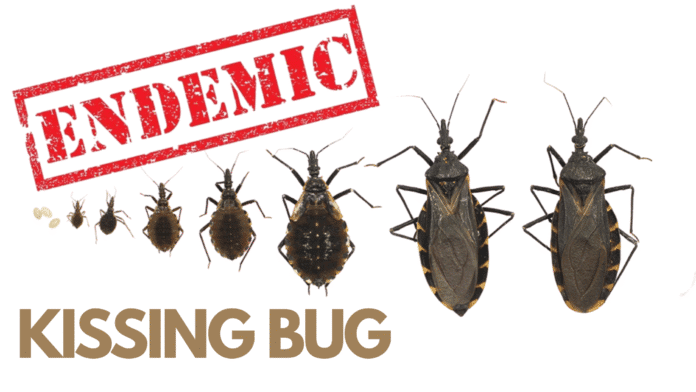Chagas disease — the potentially serious illness spread by “kissing bugs” — is now being described as endemic in the United States by researchers publishing in the CDC’s Emerging Infectious Diseases journal, a shift that underscores growing evidence of local transmission in the South and raises fresh questions about Florida’s preparedness.
What’s new
- A peer-reviewed overview in a CDC journal argues the U.S. should be treated as Chagas-endemic, citing locally acquired human infections confirmed in eight states (including Texas, Arizona and California) and the widespread presence of the insect vectors across 32 states. The paper estimates roughly 280,000 people in the U.S. are living with the infection.
- National outlets reported the shift last week, with researchers and clinicians calling for routine screening of at-risk patients and better physician education so cases aren’t missed until heart or digestive complications appear years later.
Florida snapshot
Florida has the bugs, the parasite, and animal reservoirs — and an estimated ~18,000 residents living with chronic Chagas — but no confirmed locally acquired human cases have been documented in the state to date, recent field research notes.
- A decade-long UF/Texas A&M study collected Triatoma sanguisuga (the most common Florida “kissing bug”) from 23 counties, found ~30–35% infected with the Chagas parasite (Trypanosoma cruzi), and detected human blood meals in ~23% of examined bugs — evidence of close contact with people and a credible pathway for transmission.
- UF’s Emerging Pathogens Institute says the ingredients for local spread — infected bugs, infected wildlife (like raccoons and opossums), and frequent human/animal contact — are “all present” in Florida.
- Despite that, Chagas is not a reportable disease in Florida, so the state does not systematically track cases — a gap researchers say hampers surveillance and awareness.
Florida’s Department of Health acknowledges infected bugs and animal reservoirs in the state but has historically assessed the risk of local human transmission as low — a stance now being revisited by scientists as new data accumulates.
Why it matters
Chagas often starts with mild or unnoticed symptoms (fever, fatigue, swelling around one eye known as Romaña’s sign). 20–30% of infected people later develop serious heart or digestive disease, sometimes decades after exposure. Because early illness looks like many other conditions, missed diagnoses are common. The CDC highlights that effective treatments (benznidazole, nifurtimox) are available and work best when started early. Blood donor screening is widespread nationwide and can flag silent infections.
How people (and pets) are exposed
Kissing bugs feed at night, often around the face; infection typically occurs when parasite-laden bug feces are rubbed into the bite, eye, or mouth. Dogs and cats can also be infected — frequently by eating the bug — and may serve as sentinels of local risk around homes.
What Floridians can do right now
Reduce contact with kissing bugs around homes and kennels:
- Seal gaps around doors, windows, eaves; repair screens.
- Tidy up debris, woodpiles, and animal nesting sites near the house; limit wildlife attractants.
- Limit outdoor lighting at night (when safe), which draws in flying bugs.
- Use EPA-registered repellents, and consider bed nets on camping trips.
Local companies are even tailoring services to this emerging risk. For example, HS Shade Solutions recently launched a campaign offering free inspections and discounts on motorized screens, citing warnings from health experts that torn or damaged screens can give mosquitoes and kissing bugs easy access to Florida homes.
If you think you’ve been exposed or test positive as a blood donor: contact a clinician familiar with Chagas. The CDC notes that diagnostic testing and treatment are available in the U.S., and early therapy can prevent long-term complications.
The policy gap in Florida
Researchers emphasize that Florida’s lack of mandatory reporting makes it harder to quantify risk, educate clinicians, and guide prevention — particularly in communities with close ties to Latin America where many chronic cases originate. UF experts have urged targeted screening and provider education to catch infections earlier and interrupt potential local transmission.
Bottom line
- The science has shifted: A CDC-journal review frames Chagas as endemic in the U.S., with bugs and the parasite entrenched across the South.
- Florida is primed: infected bugs documented in dozens of counties, human blood meals detected, reservoirs present — but no confirmed local human cases yet. Vigilance and better surveillance remain key.
- Actionable steps: harden homes, manage outdoor environments, and ensure at-risk patients and positive blood donors get testing and timely treatment.











